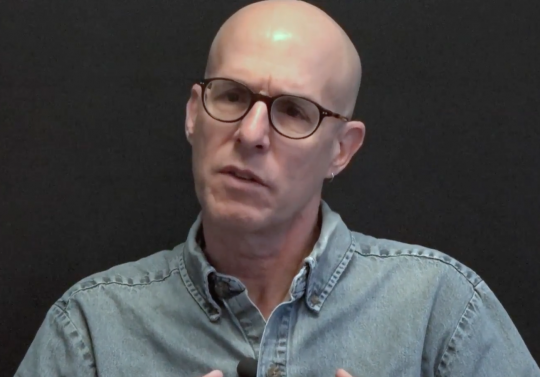A philosophy professor writing for the New York Times pondered whether the extinction of the human race would be a positive thing for the Earth.
Clemson University's Todd May, likening the downfall of humanity to famous tragic characters like King Lear and Oedipus, said it could well be that humanity requires "elimination," although it would be sad. May serves as a philosophical adviser for "The Good Place," an NBC comedy about a woman trying to be a better person to deserve a utopian afterlife.
"It is humanity that is committing a wrong, a wrong whose elimination would likely require the elimination of the species, but with whom we might be sympathetic nonetheless for reasons I discuss in a moment," he wrote in an op-ed published Monday.
May wrote human beings are destroying animals' ecosystems and the planet with their population growth and contributions to climate change, and if that were all there was to the story, "the elimination of the human species would be a good thing, full stop."
However, the professor's piece is torn between bemoaning the losses of art and culture due to humanity's erasure, while also realizing there would be no human viewpoint to experience this absence with all of us being dead. To answer whether the preservation of these enlightened human achievements is worth the harm humans cause to animals and the environment, he asked another question: "How many human lives would it be worth sacrificing to preserve the existence of Shakespeare’s works?"
None, he said. No one would say it was morally right to kill a single person to save Shakespeare.
"So, then, how much suffering and death of nonhuman life would we be willing to countenance to save Shakespeare, our sciences and so forth?" he wondered. "Unless we believe there is such a profound moral gap between the status of human and nonhuman animals, whatever reasonable answer we come up with will be well surpassed by the harm and suffering we inflict upon animals."
In the end, he can't be sure whether it would be a "good thing" for everyone on Earth to kill themselves to stop more animal suffering.
"One might ask here whether, given this view, it would also be a good thing for those of us who are currently here to end our lives in order to prevent further animal suffering. Although I do not have a final answer to this question, we should recognize that the case of future humans is very different from the case of currently existing humans," he wrote.
"It may well be, then, that the extinction of humanity would make the world better off and yet would be a tragedy. I don’t want to say this for sure, since the issue is quite complex. But it certainly seems a live possibility, and that by itself disturbs me."
He ominously concluded the human race may bring about its own inadvertent destruction, regardless.
It's not the first gloomy outlook the New York Times has published from academia. In July, a Notre Dame professor of English wrote he wept after the birth of his daughter, first for joy, then in despair over bringing her into a world doomed to be destroyed.
